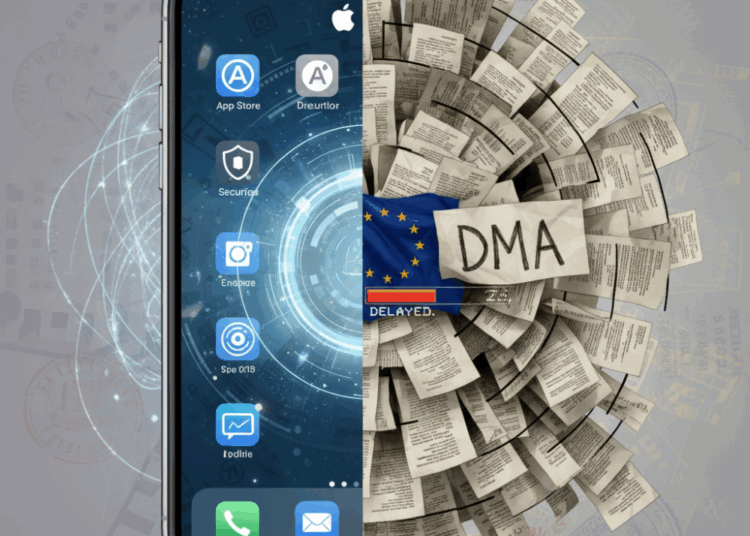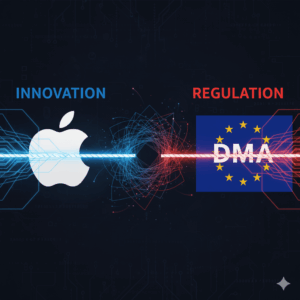Apple Criticizes EU Digital Markets Act Over Feature Delays
Apple has openly criticized the European Union’s Digital Markets Act (DMA), arguing that the regulation is leading to significant delays in feature rollouts and creating heightened security and privacy risks for EU users. The iPhone maker said that while the DMA was designed to level the playing field and curb the dominance of Big Tech firms, it is instead complicating operations, hindering innovation, and ultimately harming consumers.
The DMA, which came into effect in 2023, requires large technology companies to open their platforms to third-party services, enable interoperability, and allow alternative app marketplaces. While regulators insist that the law encourages competition, Apple has voiced concerns that the implementation undermines user security and compromises product integrity.
Apple Postpones iPhone and AirPods Features in EU
Apple confirmed that several new features—initially expected to be available for European users this year—have been postponed due to compliance challenges. These include:
-
iPhone Mirroring to Mac: A feature designed to let users project their iPhone interface onto their Mac.
-
Live Translation with AirPods: A real-time translation feature for international communication.
-
Location-Based Features in Apple Maps: Functions that would leverage geolocation data for improved navigation and personalization.
According to Apple, these tools were delayed because the DMA obliges the company to ensure that certain features can work seamlessly with third-party products and services, which raises significant engineering and security hurdles.
User Security and Privacy Concerns
Apple emphasized that the most critical issue stems from data protection and consumer safety. The company argued that complying with the DMA could expose EU users to risks such as:
-
Increased exposure to scams and malware.
-
The presence of apps containing harmful or inappropriate content, including pornography.
-
A less intuitive user experience when compared with Apple’s tightly controlled App Store ecosystem.
The company also claimed that its proposed safeguards to mitigate these risks were rejected by the European Commission, leaving it with few workable options.
Apple stated bluntly: “It’s become clear that we can’t solve every problem the DMA creates. Over time, it’s become clear that the DMA isn’t helping markets. It’s making it harder to do business in Europe.”
App Store Changes Under the DMA
In June, Apple modified its App Store rules and fee structure across the EU in response to antitrust directives tied to the DMA. These changes were meant to foster competition by allowing sideloading—installing apps outside the App Store—and supporting alternative marketplaces.
However, Apple argued that such changes erode the safety and trust that users associate with its ecosystem. By allowing third-party app marketplaces, the company believes the DMA has effectively introduced vulnerabilities that Apple had previously eliminated through its closed ecosystem model.
Broader Reactions to the DMA
The European Commission has yet to respond to Apple’s latest criticism. Regulators, however, have consistently defended the law, insisting that it is necessary to break down monopolistic structures and foster innovation.
On the other hand, critics—including some U.S. policymakers—have questioned whether the DMA’s strict requirements are stifling innovation rather than promoting it. Apple’s latest stance echoes those concerns, suggesting that the law may unintentionally disadvantage European consumers by depriving them of timely feature updates and exposing them to risks.
The Future of Apple and EU Tech Regulations
The ongoing debate between Apple and the European Commission reflects a broader struggle between innovation, competition, and regulation. Apple is expected to continue adapting its business model to comply with EU law, but its warnings highlight the complex balance regulators must strike between consumer protection and fostering open markets.
For now, EU users may have to wait longer than the rest of the world for access to Apple’s most advanced features—an outcome the company insists is a direct result of the Digital Markets Act.
Stay ahead of global tech debates in the top business magazine—read more on IMPAAKT.














